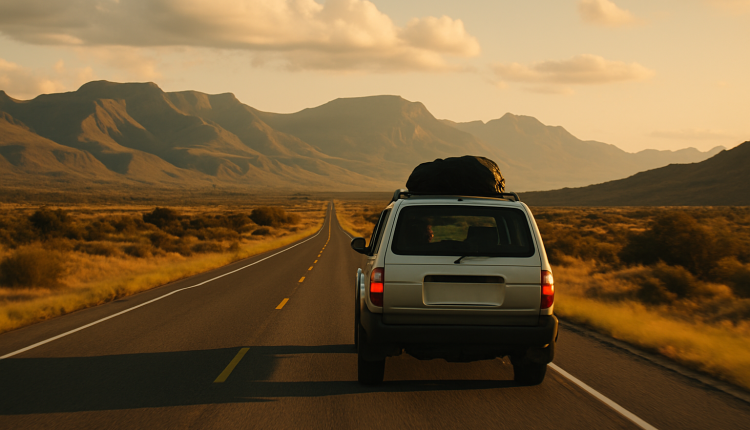Chasing Horizons: How to Plan a Meaningful Road Trip That Goes Beyond the Destination
There’s something profoundly liberating about a road trip. The windows down, your favorite playlist humming in the background, the vastness of the open road ahead — it all creates a sense of adventure and introspection unlike any other form of travel. But as road trips gain popularity, especially among those seeking slower, more intentional travel, a new mindset is taking hold. It’s no longer just about getting from Point A to Point B or checking sights off a list — it’s about crafting meaningful experiences along the way.
The Allure of the Long Way
Unlike air travel, where the journey is often reduced to a mere inconvenience between destinations, road trips embrace the journey as the main event. Each hour brings new landscapes, people, and stories. You stop not just because you need gas, but because you spotted a hand-painted sign advertising homemade peach cobbler. You turn off the highway to see where that dusty gravel path leads — not because it’s on your itinerary, but because curiosity pulled you there.
Planning a meaningful road trip begins by shifting your focus. Instead of rushing to cover distance, build your route around possibilities. Think scenic byways, small towns, quirky roadside attractions, local eateries, and natural wonders. The slower you go, the more you see — not just out the window, but within yourself.
Map with Intention, Not Rigidity
Every great road trip starts with a map. But meaningful travel isn’t about plotting every hour; it’s about leaving space for spontaneity. Start with a loose framework: major regions you want to explore, general direction of travel, and a few anchor points where you’ll stay longer or meet friends. Then, identify cultural sites, state parks, or offbeat landmarks that inspire you.
Apps and digital maps can be helpful for navigation, but don’t underestimate the power of a physical map. It encourages a different kind of attention — one that’s less about efficiency and more about discovery. Mark spots not just for their popularity, but for their emotional resonance: a town where your grandmother once lived, a beach where you had your first vacation as a child, or a place you’ve always wanted to see after reading about it in a novel.
Packing for the Spirit as Well as the Body
Yes, bring your charger, sunscreen, and extra socks. But also pack items that feed your spirit. Bring a notebook or travel journal. Pack books — not travel guides, but stories that deepen your connection to the land and its people. A road trip is also a journey inward. Create space in your car, and your mind, for reflection.
Leave room for items you’ll pick up along the way: local crafts, handmade jams, shells, rocks, or postcards. These mementos aren’t just souvenirs; they’re memory triggers that will return you to a moment, a conversation, a roadside diner with red vinyl booths and the best chili you’ve ever had.
Localism Over Landmark Chasing
Big cities and national parks are iconic stops, but there’s magic in the spaces in between. Choosing to explore smaller towns and lesser-known attractions allows you to experience a more authentic slice of life. It means supporting local economies, learning regional histories, and having real conversations with people whose stories won’t make it into guidebooks.
Ask locals for recommendations. Eat where they eat. Visit farmers’ markets, attend a church service, wander into a town museum. You’ll begin to see a different side of the country — one not curated for tourists, but grounded in everyday life. These experiences often stay with us far longer than snapping a photo at a famous landmark.
Embrace the Unexpected
Flat tires, wrong turns, sudden storms — they can feel like disasters in the moment, but they often become the most memorable parts of the trip. Detours bring lessons in patience, humility, and flexibility. The ability to laugh at a situation, to adapt and find joy despite setbacks, is what makes road tripping such a powerful metaphor for life.
Let go of the illusion of perfection. Not every moment will be picture-worthy, but every moment is part of your story. And when you return home, it won’t be the perfectly executed itinerary you remember — it’ll be the small, unscripted moments: the coffee shop with the kind barista, the impromptu swim in a mountain lake, the unexpected kindness of strangers.
Build Community Along the Way
Solo or in a group, road trips have a unique way of building human connection. You meet people at campgrounds, hostels, rest stops, and roadside diners. Even within your travel group, long hours in the car invite deep conversations that don’t always happen in everyday life. Shared playlists, snacks passed back and forth, spontaneous sing-alongs — these create a sense of camaraderie that’s hard to replicate elsewhere.
If you’re traveling solo, consider connecting with fellow travelers online or through social media groups focused on road travel. You can share tips, routes, and even plan meet-ups. Community adds richness to your journey and often leads to friendships that outlast the road trip itself.
Slow Down to Go Deeper
Above all, a meaningful road trip isn’t about ticking off miles — it’s about cultivating presence. It’s about looking up from your GPS to notice the sky changing color as the sun sets over an open field. It’s about choosing the scenic detour, even if it adds an extra hour. It’s about creating a journey that aligns with your values, not someone else’s travel list.
So, the next time you set out on the road, leave space in your schedule for surprise. Choose intention over itinerary. Embrace the detours. Because when you’re chasing horizons, the real destination is who you become along the way.

